SkyLight Paths Illuminations Series (46 vols.)
Digital Logos Edition
Overview
This extensive collection of religious texts examines a wide variety of spiritual traditions. Modern students of religion understand the difference between traditional streams of thought regarding Ultimate Reality. These volumes invite readers into the ancient conversation and provide a grounding for modern scholarship and inter-faith understanding.
Take a tour of traditional Jewish spirituality with modern rabbinical scholars. Observe diverse Gnostic beliefs about Jesus from unorthodox source material. Understand Islamic spirituality at its most refined form by reading a modern presentation of al-Ghazali’s writings. Additionally, celebrated authors from Christian church history, Charles and John Wesley are presented with helpful reflections for modern day ministry. Great care is taken by expert authors to clarify misunderstandings and to present unities among these disparate expressions of religious belief with honesty and respect.

Key Features
- Includes facing-page commentary offering analysis and cultural context
- Offers insight into diverse belief systems
- Provides a depth of insight into Christian, Islamic, Jewish, and Gnostic source materials
Product Details
- Title: SkyLight Paths Illuminations Series
- Series: Skylight Illuminations
- Publisher: Skylight Paths
- Volumes: 46
- Pages: 10,528
- Resource Type: Ancient Texts
- Topic: Theology
Individual Titles
- Spiritual Writings on Mary annotated by Mary Ford-Grabowsky
- Hildegard of Bingen: Essential Writings and Chants of a Christian Mystic translated & annotated by Dr. Sheryl A. Kujawa-Holbrook
- The Imitation of Christ: Adapted from John Wesley’s The Christian’s Pattern by Thomas à Kempis and annotated by Paul Wesley Chilcote
- Julian of Norwich: Selections from Revelations of Divine Love annotated by Mary C. Earle
- Saint Ignatius Loyola—The Spiritual Writings by Saint Ignatius Loyola and annotated by Mark Mossa
- Saint Augustine of Hippo: Selections from Confessions and Other Essential Writings by Augustine of Hippo and annotated by Joseph T. Kelley
- The Qur’an and Sayings of Prophet Muhammad translated by Yusuf Ali and annotated by Sohaib N. Sultan
- Ghazali on the Principles of Islamic Spirituality: Selections from The Forty Foundations of Religion by al-Ghazali and annotated by Aaron Spevack
- Rumi & Islam: Selections from his Stories, Poems and Discourses by Mawlana Jalaluddin Rumi and annotated by Ibrahim Gamard
- The Infancy Gospels of Jesus: Apocryphal Tales from the Childhoods of Mary and Jesus by Stevan Davies
- Celtic Christian Spirituality: Essential Writings by Mary C. Earle
- Desert Fathers and Mothers: Early Christian Wisdom Sayings by Christine Valters Paintner
- Philokalia—The Eastern Christian Spiritual Texts annotated by Allyne Smith
- The Way of a Pilgrim: The Jesus Prayer Journey translated and annotated by Gleb Pokrovsky
- The Book of Job annotated by Donald Kraus
- The Divine Feminine in Biblical Wisdom Literature translated and annotated by Rami Shapiro
- Ecclesiastes translated and annotated by Rami Shapiro
- Ethics of the Sages: Pirke Avot translated and annotated by Rami Shapiro
- Hasidic Tales translated and annotated by Rami Shapiro
- The Hebrew Prophets translated and annotated by Rami Shapiro
- Maimonides—Essential Teachings On Jewish Faith & Ethics: The Book of Knowledge & the Thirteen Principles of Faith annotated by Marc D. Angel
- Proverbs translated and annotated by Rami Shapiro
- Tanya, the Masterpiece of Hasidic Wisdom annotated by Rami Shapiro
- Zohar annotated by Daniel C. Matt
- Gnostic Writings on the Soul annotated by Andrew Phillip Smith
- The Gospel of Philip annotated by Andrew Phillip Smith
- The Gospel of Thomas annotated by Stevan Davies
- The Secret Book of John: The Gnostic Gospel annotated by Stevan Davies
- The Lost Sayings of Jesus: Teachings from Ancient Christian, Jewish, Gnostic and Islamic Sources by Andrew Phillip Smith
- The Book of Common Prayer: A Spiritual Treasure Chest by C.K. Robertson
- The Meditations of Marcus Aurelius by Marcus Aurelius and annotated by Russell McNeil
- John & Charles Wesley: Selections from Their Writings and Hymns by John and Charles Wesley and annotated by Paul W. Chilcote
- The End of Days: Essential Selections from Apocalyptic Texts annotated by Robert G. Clouse
- The Hidden Gospel of Matthew annotated by Ron Miller
- The Sacred Writings of Paul annotated by Ron Miller
- Sex Texts from the Bible annotated by Teresa J. Hornsby
- The Art of War—Spirituality for Conflict translated by Thomas Huynh
- Bhagavad Gita translated by Shri Purohit Swami
- The Book of Mormon annotated by Jana Riess
- Chuang-tzu: The Tao of Perfect Happiness translated by Livia Kohn
- Confucius, The Analects: The Path of the Sage translated by James Legge and annotated by Rodney L. Taylor
- Dhammapada translated by Friedrich Max Müller and annotated by Jack Maguire
- Native American Stories of the Sacred annotated by Evan T. Pritchard
- Selections from the Gospel of Sri Ramakrishna translated by Swami Nikhilananda and annotated by Kendra Crossen Burroughs
- Tao Te Ching translated by Derek Lin
- Perennial Wisdom for the Spiritually Independent: Sacred Teachings annotated by Rami Shapiro
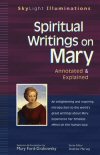
Mary, the mother of Jesus, has been revered for centuries by people from all over the world. She is a paragon of humility, righteousness and dedication, and her life as mother and prophet can serve as an example to all Christians.
In over two hundred selections, Spiritual Writings on Mary examines the essential aspects of Mary’s role in history and in life today. Selections from influential writers, thinkers and theologians—both ancient and modern, from a wide range of Western and Eastern backgrounds—explore what life may have been like for Mary, Joseph and Jesus, and celebrate the many ways in which Mary serves as a model of holiness for all women and men; as the archetype of motherhood; and as a source of tenderness, comfort, protection and peace.
Like a master jeweler restoring lost treasures, Mary Ford-Grabowsky lights up the hidden beauty and meaning of these wondrous texts. . . leading us with surety and wisdom into the very heart of Mystery. Once again, she astounds us with the depth of her learning and the sweet profundity of her insights.
—Dorothy Walters, PhD, author, Marrow of Flame: Poems of the Spiritual Journey
Remarkable. . . An essential guide for any reader or spiritual seeker, regardless of religious background or tradition, with an abiding interest in the saint above all others.
—Jon M. Sweeney, author, The Lure of Saints: A Protestant Experience of Catholic Tradition
In a world all too enamored with what is macho and muscular, this wonderful book celebrates the eternal mystery of the Divine Feminine. This is indeed a book for our time.
—Ron Miller, chair of the religion department at Lake Forest College and coauthor, Healing the Jewish-Christian Rift: Growing Beyond Our Wounded History
A beautiful combination of spiritual inspiration and inspired scholarship. . . Sheds new light on the much-explored phenomenon of Mary, mother of Jesus.
—Stephanie Marohn, author, Crossroads and Awakenings: Turning Points in Lives of Spirit
Mary Ford-Grabowsky is an award-winning author and teacher in the field of theology and spirituality. After receiving her doctorate from Princeton Theological Seminary, she taught in the religious studies department at Regis College, edited the journal Fellowship in Prayer, and became academic dean at the University of Creation Spirituality in the San Francisco Bay area. Among her books are Stations of the Light, Sacred Voices, WomanPrayers, Prayers for All People, and Sacred Poems and Prayers of Love. An experienced lecturer, workshop leader, and radio and television speaker, she is featured on the widely-acclaimed CD produced by the BBC, Hildegard von Bingen in Portrait, and her interview with “New Dimensions” radio in California was reproduced on a four-disc set called Women of Wisdom. She and her husband live in Massachusetts.
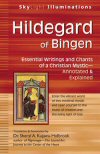
Hildegard of Bingen—visionary, abbess, composer, dramatist, poet and healer—was the brilliant and passionate precursor of many of the great women mystics of the Middle Ages. Her body of work is unusually expansive in terms of genre and subject matter for any theologian of her time, and includes powerful descriptions of her visions, advice to influential nobles and royalty, theological correspondence with fellow monastics, liturgical songs, and medical and scientific works.
Hildegard’s strong personality and vivid spiritual experiences still speak to readers within the church as well as those who are not formally religious but who have an interest in mysticism, the spiritual life, and feminist and eco-spiritualities, or who are drawn to Hildegard through the arts, particularly her music.
This unique introduction to Hildegard’s world and writings presents a wide range of her texts grouped by theme, providing a deeper understanding of this influential spiritual figure than those found in single-themed collections. Insightful and instructive annotations provide historical background and place selections within the wider context of Hildegard’s understanding of the spiritual life and the natural world.
A lively, faithful and widely accessible translation for which those familiar with the visionary’s work will be grateful and which will invite new readers into an amazing body of luminous mystical wisdom.
—Elizabeth Drescher, PhD, author, Choosing Our Religion: The Spiritual Lives of America’s Nones
Well-chosen thematic selections. . . [The] introduction and concise annotations provide just enough historical background for any reader who desires to hear Hildegard’s voice as a fresh and inspiring testimony to the Living Light.
—Arthur Holder, PhD, professor of Christian spirituality and dean, Graduate Theological Union
Splendid. . . Each page overflows with faith and beauty, hope and love, as well as illuminating insights.
—Mary Ford-Grabowsky, author, Spiritual Writings on Mary: Annotated & Explained; featured on the BBC CD Hildegard von Bingen in Portrait
A rich overview of Hildegard’s wide-ranging work. . . reveal[s] the depth and subtlety of her insight.
—Carl McColman, author, The Big Book of Christian Mysticism and Befriending Silence
Dr. Sheryl A. Kujawa-Holbrook, an Episcopal priest, is a popular teacher, speaker and retreat leader on topics related to Christian spirituality, mysticism, social activism and interreligious encounter. A professor of practical theology at Claremont School of Theology, Claremont Lincoln University, and professor of Anglican studies at Bloy House, the Episcopal Theological School at Claremont, she is author of Hildegard of Bingen: Essential Writings and Chants of a Christian Mystic—Annotated & Explained and Pilgrimage—The Sacred Art: Journey to the Center of the Heart, among other books.
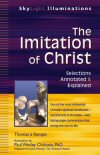
Next to the Bible, The Imitation of Christ is the most widely read devotional work within the Christian community. Thought to be compiled by fifteenth-century cleric Thomas à Kempis (c. 1380–1471), this spiritual classic focuses the contemporary God-seeker on a religion of the heart—a vital connection with God in our innermost being. It advocates the cultivation of virtues, like humility and purity of intention, by inviting the spirit of Jesus to dwell richly in our lives. It emphasizes the need to translate that life of love into daily action.
Now you can experience the timeless wisdom of this spiritual classic with no previous knowledge of late medieval Christianity. This SkyLight Illuminations edition, based on John Wesley’s popular 1741 abridgment, renders these meditations on the life and teachings of Jesus in a way that is accessible to the contemporary reader. A substantive introduction and facing-page commentary places the work in its original context; clarifies the text’s roots in the Bible, the early Church, and medieval mysticism; and explains its influence—spanning five hundred years—on spiritual luminaries from saints to popes and its continuing significance today.
Shows the enduring value. . . for Christians today. A tested guide to simplicity and purity in following Christ, this spiritual classic gets at the heart of the Gospel, even as it moves the hearts of its readers.
—Ann W. Astell, president, Society for the Study of Christian Spirituality, University of Notre Dame
[A] generous and wise representation of a spiritual masterpiece. . . Does not simply offer help in reading this pivotal contribution to Christian devotion. [It] encourages readers to make their own discoveries and offers them the tools needed for the effort.
—The Reverend Dr. Frederick W. Schmidt, director of spiritual formation and Anglican studies, Perkins School of Theology, Southern Methodist University; author, What God Wants for Your Life
A splendid edition of one of Christianity’s timeless classics. . . Will be richly appreciated by readers of Christian spirituality as well as spiritual pilgrims along the Christian way.
—Dr. John R. Tyson, visiting professor of church history, Colgate Rochester Crozer Divinity School
[A] wonderfully accessible translation and helpful commentary. . . helps us to experience why it speaks with great relevance to generation after generation, across all cultures.
—Trevor Hudson, author, Journey of the Spirit
Thomas à Kempis (also known as Thomas Hemerken) d. 1471, was a late medieval Catholic monk.
Paul Wesley Chilcote (PhD) is academic dean and professor of historical theology and Wesleyan studies at Ashland Theological Seminary in Ohio. He enjoys a special relationship with Mt. Angel Abbey in Oregon as a Benedictine Oblate and is the author of many books, including Early Methodist Spirituality; Recapturing the Wesley’s Vision: An Introduction to the Faith of John and Charles Wesley; and John & Charles Wesley: Selections from Their Writings and Hymns—Annotated & Explained (SkyLight Paths).
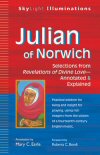
Many people are familiar with the phrase “All shall be well” but do not know much, if anything, about Julian of Norwich, the fourteenth-century English mystic who wrote those words. Thomas Merton declared her to be “without a doubt one of the most wonderful of all Christian voices,” and former Archbishop of Canterbury Rowan Williams says that her writings “may well be the most important work of Christian reflection in the English language.”
This accessible introduction to Julian’s Revelations of Divine Love, an extended reflection on a series of her mystical visions, includes an informative introduction that addresses the historical, cultural and sociological context of Julian’s life and writings. Mary Earle’s facing-page commentary focuses on Julian’s profoundly hopeful vision of humanity and God, her creative imagery and her rigorous honesty about the spiritual life. Drawing directly from Julian’s text, Earle addresses a variety of topics essential to understanding Julian’s mysticism, including the infinite nature of God, the life of prayer, God’s suffering with us, the eternal and undying life of the soul, the motherhood of Jesus and the motherhood of God, “all shall be well” and more.
Wise, profound and powerful. . . I cannot imagine a better spiritual introduction to the essential teaching of Julian of Norwich.
—Greg Garrett, PhD, professor of English, Baylor University; author, The Other Jesus and The Prodigal
Directs people to the God who met a humble woman of Norwich and transformed her into one of Christianity’s most enduring voices of God’s love. . . Advances Julian’s legacy, making the saint’s writing accessible to a new generation in its own language.
—Tara M. Owens, MTS, CSD, spiritual director, Anam Cara Ministries; senior editor, Conversations Journal
Infused with quiet love, Mary Earle’s commentary brings readers to Julian’s revelations with tenderness, insight and respectful intimacy.
—Suzanne Guthrie, founder, EdgeOfEnclosure.org
Mary Earle accompanies Julian’s text with what Julian herself might call ‘light touchings’ that illuminate and translate the medieval visionary’s rich theology for contemporary readers.
—Amy Frykholm, author, Julian of Norwich: A Contemplative Biography
Mary C. Earle, an Episcopal priest, retreat leader and spiritual director, is the author of Julian of Norwich: Selections from Revelations of Divine Love—Annotated & Explained; The Desert Mothers: Spiritual Practices from the Women of the Wilderness and Celtic Christian Spirituality: Essential Writings—Annotated and Explained; she co-authored Holy Companions: Spiritual Practices from the Celtic Saints and Praying with the Celtic Saints. In addition to four books on the spirituality of living with illness, she has written for explorefaith.org. She has been introducing the writings of Julian in seminary classes, retreats and conferences for over twenty years.
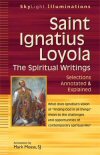
Ignatius of Loyola, sixteenth-century mystic, spiritual director, and founder of the Society of Jesus, is considered to be among the greatest educators in the history of Western civilization. While the Jesuits went on to establish one of the largest educational networks in the world, Ignatius’s initial vision was simply “the help of souls.” Even today, his writings continue to inspire Christians in their quest for a meaningful holy life. The Spiritual Exercises alone—Ignatius’s most well-known work—has guided the retreat experience of over a million Christians over nearly five centuries.
This fascinating introduction to Ignatian spirituality draws from contemporary translations of original texts focusing on the practical mysticism of Ignatius of Loyola. Excerpts from The Spiritual Exercises, his autobiography, and his collected letters and instructions provide direct insights from Ignatius about the role of humility, obedience, discernment, sin and self-awareness in spiritual life. Substantive facing-page commentary illuminates Ignatius’s perspectives on many key aspects of Christian spirituality, including trusting in God, imitating Jesus and the saints, love and the common good, and much more.
Accessible, inviting and user-friendly. . . Both novices to the spiritual life and experienced retreat directors will discover in [this] clever book a compendium of crucial passages supplemented by insights that are thoughtful, grounded in scholarship and most Ignatian of all—practical.
—James Martin, SJ, author, The Jesuit Guide to (Almost) Everything
Wonderful. . . We hear the saint’s own voice—and we hear Fr. Mark’s instructive commentary to help us benefit from centuries-old insights today.
—Brian McLaren, speaker and theologian; author, Naked Spirituality: A Life with God in 12 Simple Words
For the first time. . . brings together The Spiritual Exercises as well as the letters and memoirs of Saint Ignatius in a form that illuminates the work of this spiritual master in an engaging and accessible fashion. If you are new to Ignatius, read this first. If you are a student of his work, read it for fresh perspective.
—The Rev. Dr. Frederick W. Schmidt, director of spiritual formation and Anglican studies, Perkins School of Theology, Southern Methodist University; author, What God Wants for Your Life
Provides a multi-faceted mosaic of Ignatius’s pragmatic mind, passionate heart and profound commitment to help individuals grow in a personal relationship with God. An excellent contribution to a deeper understanding of Ignatian spirituality.
—Maureen Conroy, RSM, DMin, worldwide educator of spiritual directors; author, The Discerning Heart: Discovering a Personal God
Mark Mossa, SJ, teaches American Catholicism at Fordham University and has also taught at Loyola University in New Orleans. He frequently writes on Ignatian spirituality, contemporary Christianity and ministry with youth and young adults. He is coauthor of Just War, Lasting Peace: What Christian Traditions Can Teach Us and author of Already There: Letting God Find You.
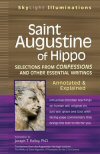
Augustine of Hippo (354–30 A.D.), theologian, priest, and bishop, is one of the most important figures in the development of Western Christianity. He is known as much for his long interior struggle that ended with conversion and baptism at age thirty-two as for his influential teachings on human will, original sin and the theology of just war. Cherished as a model for the pursuit of a life of spiritual grace and criticized for his theory of predestination, Augustine is recognized as a living expression of the passion to understand and communicate the deeper meanings of human experience.
With fresh translations drawn from Augustine’s voluminous writings and probing facing-page commentary, Augustinian scholar Joseph T. Kelley, PhD, provides insight into the mind and heart of this foundational Christian figure. Kelley illustrates how Augustine’s keen intellect, rhetorical skill and passionate faith reshaped the theological language and dogmatic debates of early Christianity. He explores the stormy religious arguments and political upheavals of the fifth century, Augustine’s controversial teachings on predestination, sexuality and marriage, and the deep undercurrents of Augustine’s spiritual quest that still inspire Christians today.
Rescues the eloquence and relevance of Saint Augustine for contemporary readers. This is a book for students, scholars—and any earnest seeker in search of a great companion.
—James Carroll, author, Practicing Catholic and Constantine’s Sword
An important contribution. . . Combines both the technical expertise of an Augustine scholar and the communication skills that make his work appealing to [non-scholarly] readers. One can only hope that this book is the first of many on Saint Augustine to flow from Dr. Kelley’s pen.
—Donald X. Burt, OSA, professor emeritus, Villanova University
Becoming acquainted with Christianity necessarily entails encountering Saint Augustine. Joseph Kelley’s illuminating anthology is a compelling introduction to the ancient church’s most profound thinker.
—Professor Jane E. Merdinger, Augustinian Heritage Institute; author, Rome and the African Church in the Time of Augustine
Joseph T. Kelley, PhD, is founder of the Center for Augustinian Study and Legacy, associate professor in religious and theological studies, and former provost at Merrimack College in North Andover, Massachusetts. As a board member of the Augustinian Heritage Institute (Villanova, Pennsylvania), he helps oversee a new English translation series of the complete works of Saint Augustine by New City Press. He is author of Faith in Exile: Seeking Hope in Times of Doubt, 101 Questions and Answers on Prayer, and 101 Questions and Answers on the Four Last Things.
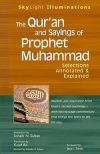
For many in the West, the teachings of the Qur’an often are enshrouded in mystery. Islam’s primary text gave birth to one of the most prominent and lasting civilizations in world history. By the sixteenth century, Islamic culture stretched from India to Africa to Europe, preserving with it Greek philosophy that helped spark the Renaissance. This volume is filled with thoughtful explanations of Islam’s interwoven ideas of faith and reason, justice and mercy.
With gentleness and insight, Sohaib N. Sultan leads students through the central themes of both the Qur’an and the collected sayings of Prophet Muhammad, known as hadith. His focused study corrects common misconceptions about Islamic beliefs and provides readers of all faiths with a clear perspective of what many Muslims actually believe. He explains how Muslims understand and describe their god as merciful. He writes of how they attempt to cultivate peace and justice in their self, family, and society. His annotations answer questions about how Muslims view the afterlife and how they attempt to attain it. Insightful yet unobtrusive facing-page commentary explains the primary texts, facilitating understanding and serving as a valuable primary-source reader.A superb guide. . . intelligently illuminates each thematically arranged passage and concisely summarizes centuries of Islamic interpretive wisdom.
—Scott C. Alexander, PhD, associate professor of Islam and director of Catholic-Muslim Studies, Catholic Theological Union
A comprehensive but accessible introduction. . . Assists the reader in grasping the basic issues that underlie the teachings of Islamic spirituality. . . Stimulating and thought-provoking, allowing the reader to dialogue with Islamic spirituality at a level very near to lived experience.
—Monastic Interreligious Dialogue
Takes complex, wide-ranging aspects of Islam and makes them clear and accessible for the non-Muslim and Muslim alike. Comes alive with thoughtfully presented insights and reflections. Whether you have a passing interest in Islam, or have serious questions about this community of faith, you will want to consult [this book].
—Rev. Steven Blackburn, PhD, Duncan Black Macdonald Center for the Study of Islam and Christian-Muslim Relations
Sohaib N. Sultan is the author of The Koran for Dummies. In 2005, he was appointed as the first-ever Muslim chaplain at Yale University and now serves as a Muslim chaplain at Trinity College and Wesleyan University. He is a freelance journalist and public speaker.
Abdullah Yusuf Ali (1872–1953) was a scholar of Islam from India who also studied in England. He served as vice chancellor of Islamia College in Lahore, Pakistan.
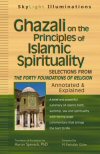
Imam Abu Hamid al-Ghazali is one of the most influential thinkers of medieval Islam. His writings on the interrelation of law, theology and mysticism were central in establishing Sufism as a core dimension of orthodox Islamic practice. Today, many Muslim communities still base much of their practice of Islam on Ghazali’s writings. The Forty Foundations of Religion, Ghazali’s own summary of his best-known work, The Revival of the Religious Sciences, outlines the basis of Islamic belief, ritual, and practice.
A groundbreaking event in Islamic publishing. . . Gives this compact manual a new life in English translation by reviving the spirit and form of this classical text and by providing invaluable commentary on the original text.
—Muhammad Hozien, editor, Journal of Islamic Philosophy and Ghazali.org
Professor Spevack’s translation will be of value not only to students interested in al-Ghazali and Islamic traditions, but also to students of global spiritual and ethical traditions who are seeking a concise introduction to Islam.
—Scott Girdner, PhD, assistant professor, Department of Philosophy, Randolph-Macon College
Imam Abu Hamid al-Ghazali (1058–1111) was a Muslim theologian, philosopher, and mystic. He is generally regarded as the most influential thinker of medieval Islam.
Aaron Spevack is assistant professor of religion at Colgate University. He received his PhD at Boston University. His other works include Apples and Oranges: The Logic of the Early and Later Logicians, Jalal al-Din al-Suyuti, and Al-Bujuri.
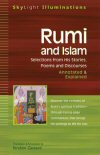
The lyric and wisdom poetry of Mawlana Jalaluddin Rumi has been read throughout the Middle East and Asia for over 700 years. Rumi and Islam—Selections from His Stories, Poems, and Discourses examines the themes of Rumi’s poetry and its place within the Sufi tradition of Islam. This SkyLight Illuminations edition presents the most important of Rumi’s writings, mainly from the Mathnawi, with insightful yet unobtrusive commentary that conveys how his teachings about the reciprocal nature of nature of love for his deity may increase understanding of Islam in the West.
Dr. Ibrahim Gamard, after painstaking research from classical Persian texts, has masterfully managed to assemble wonderful summaries, quotations, and a wealth of important information in one book.
—Ravan Farhadi, former professor of history of Persian classics, University of California at Berkeley
Mawlana Jalaluddin Rumi (1207–1273) was a poet, scholar, theologian, and Sufi mystic. His poems have had enduring popularity for over seven centuries, and are widely read by the Persian speakers of Afghanistan, Iran, and Tajikistan. His works include Maṭnawīye Ma’nawī (Spiritual Couplets), Dīwān-e Kabīr (Great Work), and Majāles-e Sab’a (Seven Sessions).
Ibrahim Gamard is a member of the Mevlevi Order, a 730-year-old Sufi order which originated with Rumi himself.
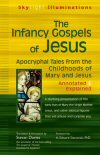
The three principal infancy gospels—the Infancy Gospel of James, the Gospel of the Infancy, and the Infancy Gospel of Thomas—describe the births and early lives of Mary the Virgin Mother and Jesus. Originating in the second through fifth centuries, these apocryphal stories reveal the beliefs and storytelling of early Christians and contain the origin of Christian legends and some of Christianity’s beloved heroes and heroines.
Go deep into early Christian ideas of Mary’s purity, as well as the prayers, feasts, and iconic representations that celebrate her life. These extraordinary folktales also provide some shocking imagery of the young Jesus, the incarnation of God—equally human and divine as he learns to control his supernatural powers and use them for good.
Experience the mystery and amusement of these charming folktales without any previous knowledge of early Christian history or thought. This SkyLight Illuminations edition offers insightful yet unobtrusive commentary that explains references and philosophical terms, shares inspiring interpretations, and gives you a deeper understanding of the sources of devotion Christians feel for Mary and the holy infant Jesus.
Very much recommended for a greater understanding of the three principal infancy gospels.
—Midwest Book Review
An ideal starting point for the study of these fascinating gospels.
—Rober J. Miller, author, Born Divine: The Births of Jesus and Other Sons of God
Weaves solid historical scholarship with a deep appreciation for folk traditions and fiction.
—Jane Schaberg, professor of religious and women’s/gender studies, University of Detroit
Stevan Davies is professor of religious studies at Misericordia University and has studied the non-canonical gospels and acts for over 30 years. He is the author of The Gospel of Thomas: Annotated and Explained, The Secret Book of John: The Gnostic Gospel—Annotated and Explained, and The Revolt of the Widows: The Social World of the Apocryphal Acts.
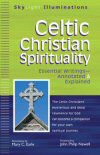
The forgotten truths of Celtic Christianity offer guidance for experiencing the world in a spiritual way. The Celtic Christians beheld the world around them and perceived the divine life of God as upholding every aspect of the material universe. Their prayers, poems, liturgies, and theological interpretations give Christians confidence in a merciful and infinitely creative, healing God. In this introduction to Celtic Christian spirituality, Mary Earle presents primary texts from the Celtic Christian tradition—selections from the works of Pelagius, Eriugena, and St. Patrick, as well as prayers and poems from Wales, the Outer Hebrides, and Ireland. These essential writings direct humanity to read the “book of creation” as well as the Bible, and call us to remember that “matter matters.” Earle’s engaging commentary explores how faithful Christians and spiritual seekers can take inspiration from this lively tradition’s ways of embodying and living the gospel.
Illuminating and luminous, insightful and grace-filled. I highly recommend this book!
—Christine Valters Paintner, author, Lectio Divina—The Sacred Art: Transforming Words and Images into Heart-Centered Prayer
Recommended . . . for anyone who wants to better understand the spirituality of the Celts and their haste in embracing Christianity.
—Library Bookwatch
I found myself reminded over and over again of the grace and beauty of creation through these lovely prayers and poems.
—Greg Garret, author, The Other Jesus
A deep well of inspiration and information for thirsty twenty-first-century pilgrims. . . A trustworthy guide along the way.
—Steven Purcell, director, Laity Lodge
Mary C. Earle is a spiritual director, retreat leader, writer, and Episcopal priest. She is the author of Broken Body, Healing Spirit: Lectio Divina, Beginning Again: Benedictine Wisdom for Living with Illness and the coauthor of Holy Companions: Spiritual Practices from the Celtic Saints.
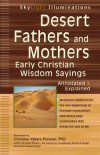
The desert fathers and mothers—ordinary Christians living in solitude in the deserts of Egypt, Palestine, Syria and Arabia—chose to renounce the world in order to deliberately and individually follow God’s call. They embraced lives of celibacy, labor, fasting, prayer and poverty, believing that by denouncing material goods and practicing stoic self-discipline, they would find unity with the Divine. Their spiritual practice formed the basis of Western monasticism and greatly influenced both Western and Eastern Christianity.
Their writings, first recorded in the fourth century, consist of spiritual advice, parables, and anecdotes emphasizing the primacy of love and the purity of heart. Focusing on key themes of charity, fortitude, lust, patience, prayer, and self-control, their works influenced the rule of St. Benedict and have inspired centuries of opera, poetry, and art.
This edition opens up their wisdom for readers with no previous knowledge of Western monasticism and early Christianity. It provides insightful yet unobtrusive commentary that describes historical background, explains the practice of asceticism, and illustrates how to apply their wisdom.
Provides not only a wonderful introduction to a fascinating world (the opening chapter alone is worth the price of the book), but an invitation to seek our own ‘word’ from the abbas and ammas of Christian antiquity . . . Offers one of the best guidebooks I’ve seen for those who’ve been called to the contemplative life.
—Paula Huston, author, The Holy Way
Offers the reader a good drink from the clear stream of desert wisdom. She honors the tradition while making it entirely relevant to our times.
Mary C. Earle, author, The Desert Mothers: Spiritual Practices from the Women of the Wilderness
A splendid introduction to one of the most essential periods of the Western contemplative tradition . . . Offers insight into the austere and wondrous spirituality of the desert . . . and why their pithy teachings remain so essential for the study and practice of Christian spirituality today. [The] commentary makes the wisdom of the desert come alive.
—Carl McColman, author, The Big Book of Christian Mysticism
Christine Valters Paintner, PhD, a Benedictine oblate, is author of Lectio Divina—The Sacred Art: Transforming Words & Images into Heart-Centered Prayer, and The Artist’s Rule: Nurturing Your Creative Soul with Monastic Wisdom among other books. She frequently leads retreats and teaches on the wisdom of Benedictine, Celtic and desert ways of praying. A writer, artist, spiritual director, retreat facilitator and teacher, she directs a global online monastery dedicated to the integration of contemplative practice and creative expression.
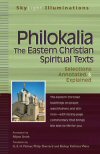
A collection of writings by monks from the fourth to fifteenth centuries, the Philokalia more than any other text reflects the Eastern Church’s interpretation of the Bible’s meaning. Simply translated, the title means “love of the beautiful,” which reflects the text’s emphasis on mystical and contemplative practices to engage all of our senses in the acts of worship and prayer.
This introduction to the wisdom of the Philokalia illuminates a text that until now has intimidated the general reader in its scholarly translations from Greek and Russian. Allyne Smith focuses his thoughtful selection on seven themes that recur throughout the five-volume work—repentance, the heart, prayer, the Jesus Prayer, the passions, stillness, and theosis. Smith’s enlightening, accessible facing-page commentary fills in the historical and spiritual context, clarifies core teachings, including the Eastern understanding of salvation, and draws connections to modern-day practices, such as contemplative prayer.
Now you can experience the spiritual wisdom of the Philokalia even if you have no previous knowledge of Eastern Christianity. This SkyLight Illuminations edition takes you on a journey through this beloved text, showing you how the teachings of Eastern monks can help you become more like God through meditative contemplation.
An invaluable treasury of wisdom…. Offers a simple guide to the way (through one’s heart) and means (through prayer) of arriving from the spiritual starting-point (of repentance in the heart) to the wonderful destination (of stillness and salvation) found in the love of divine beauty.
—John Chryssavgis, author, Light through Darkness: The Orthodox Tradition
Filled with centuries of wisdom. . . Wonderfully explains and simplifies this difficult [text].
—Religious Book Club
Like water in the desert. . . invites us not only to go deeper into the life of prayer but takes us off the treadmill of endless self-invention. A clearly and beautifully annotated text that will make the Philokalia accessible to a new generation of readers. A gift for our time.
—Fr. Alan Jones, dean, Grace Cathedral, San Francisco; author, Soul Making and The Soul’s Journey
[An] authoritative resource. . . Will go far toward making one of the great treasures of Eastern Christian spirituality accessible to followers of Christ in the West.
—Frederica Mathewes-Green, author, The Illumined Heart and Facing East
Allyne Smith is an Orthodox priest who writes and lectures on Orthodox theology, ethics, liturgy, and spirituality, both in the US and abroad. He teaches theology at Creighton University in Omaha, Nebraska.
G.E.H. Palmer also translated writings from the Philokalia: On Prayer of the Heart.
Philip Sherrard was a poet, translator, literary scholar, theologian, and interpreter of the Orthodox tradition.
Kallistos Ware is a renowned Orthodox theologian, author and translator of the Philokalia.
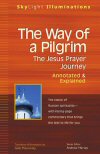
The Way of a Pilgrim is the timeless account of an anonymous wanderer who set out on a journey across nineteenth-century Russia with nothing but a backpack, some bread, and a Bible, with a burning desire to learn the true meaning of the words of St. Paul: “Pray without ceasing.” In this completely accessible new abridgment, all the terms and references are explained with intriguing insights into aspects of the text not often available to the general reader.
Now, for the first time in English, comes a truly useful version of the beloved classic of Russian spirituality—one that allows us to actually follow the pilgrim on his way.
—Clark Strand, author, The Wooden Bowl: Simple Meditations for Everyday Life
A famous nineteenth-century Russian spirituality text finds new expression.
—Publishers Weekly
I will be recommending this new translation to those interested in learning about the Jesus prayer. Thanks to the helpful annotations, it will be a most useful resource.
—Frederica Matthewes-Green, author, At the Corner of East and Now: A Modern Life in Ancient Christian Orthodoxy
Gleb Pokrovsky is a graduate of St. Vladimir’s Orthodox Theological Seminary in Crestwood, New York. He lives in Boston.
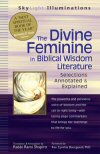
This traditional text provides readers with an ancient belief that the first of God’s creations is wisdom personified. Also known as Chochma and Sophia, this volume claims that personified wisdom is the Mother of all life, the guide to right living—God manifest in the world encountered moment to moment. As per the author’s belief, the selected teachings, embedded in the Holy Scriptures of Jews and Christians, are passionate and powerful calls to live in harmony, love with integrity and act joyously.
Through the Hebrew books of Psalms, Proverbs, Song of Songs, Ecclesiastes and Job, and the Wisdom literature books of Sirach and the Wisdom of Solomon, readers are addressed by the Divine Feminine and are challenged to become wise. Rami Shapiro’s contemporary translations and powerful commentaries clarify this ancient text, explaining what has been traditionally believed about Wisdom’s identity and teaching. The author seeks to promote a lifestyle where Wisdom’s words can help all justly, wisely and with compassion.
This SkyLight Illuminations edition presents insightful commentary and provides readers with a window into this ancient belief. This volume presents a deeply held belief in Sophia’s way of wisdom and demonstrates a hope to experience Her creative energy in this life.
Collects the best biblical passages affirming the Divine Feminine, translates them beautifully and gives us a careful nuanced discussion of each of them. . . A fine textbook resource for courses or study groups.
—Stevan Davies, author,The Gospel of Thomas: Annotated & Explained; professor of religious studies, College Misericordia
Sung with sweet authority from within the embrace of Mother Wisdom. . . A luminous and deeply moving love song.
—Dr. Judith Simmer-Brown, professor of religious studies, Naropa University; author, Dakini’s Warm Breath: The Feminine Principle in Tibetan Buddhism
Rami Shapiro’s selection and elucidation of scripture is personally fearless and profoundly faithful to the truth and wisdom we all need in our lives.
—Oriah Mountain Dreamer, author of The Invitation and What We Ache For
Rami Shapiro, a renowned teacher of spirituality across faith traditions, is an award-winning storyteller, poet and essayist. He is author of The Sacred Art of Lovingkindness: Preparing to Practice, Recovery—The Sacred Art: The Twelve Steps as Spiritual Practice and The Divine Feminine in Biblical Wisdom Literature: Selections (all SkyLight Paths), among other books.
Rev. Cynthia Bourgeault, PhD, is an Episcopal priest and retreat leader focusing in Christian Spirituality. She is principal teacher for the Contemplative Society in Victoria, British Columbia, and founding director of the Aspen Wisdom School in Aspen, Colorado. Her books include Centering Prayer and Inner Awakening, The Wisdom Way of Knowing, Encountering the Wisdom Jesus, Mystical Hope, and Love Is Stronger than Death. She serves on the core faculty for the Spiritual Paths Foundation whose mission is to promote curiosity, respect, and acceptance between people of diverse spiritual traditions.
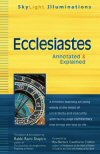
Twenty-three hundred years ago, an unnamed Hebrew sage known only as Koheleth, the Assembler of Wisdom, greatly impacted the ancient Jewish world. His critique of society that shattered conventional notions of God, piety, politics, and power. Koheleth lived in a world of change and challenge not unlike our own. Modern readers still have much to learn from this ancient text.
In this contemporary translation, Rami Shapiro presents the Book of Ecclesiastes as neither revelation nor prophecy but as a rational and inspirational guide to living well in the midst of uncertainty. Beginning with its opening broadside, “Havel havalim!”—not “futility” or “vanity” as most translations would have it, but “breath,” “vapor,” and “impermanence”—Shapiro opens up Koheleth’s approach to living in a world where nothing lasts and justice is illusory. Shapiro presents his perspective on a world devoted to accumulating power, wealth, pleasure, and knowledge that leaves men and women drowning in anxiety and needless suffering. He presents his belief that Koheleth’s God demands neither sacrifice nor adherence to commandments, and he offers instead a practical lifestyle rooted in moderation, meaningful work, and friendship.
This volume allows readers to gain a unique perspective on the Book of Ecclesiastes and to understand Koheleth’s teachings with no previous knowledge of the Hebrew Bible. This SkyLight Illuminations edition offers insightful commentary on this ancient text, presenting it as a guide for all those living in a transient world.
Clear and easy to understand. . . Serious, well thought out, and well written. . . Deserves to be included in all collections devoted to Biblical Studies and Jewish thought, and is appropriate for all adult students of the Bible whether in academia or in the general community.
—Association of Jewish Libraries Newsletter
Rami Shapiro’s spirited translation and commentary rescue this great spiritual realist from official neglect and distortion. With zest and good humor. . . shows us a courageous biblical personality who confronted the problem of life with wisdom from life.
—Ray Waddle, editor, Reflections journal; author, Against the Grain: Unconventional Wisdom from Ecclesiastes
A major contribution to our understanding of one of the most important books in the Bible.
—Jewish Media Review
Rami Shapiro’s contemporary and pungently poetic recreations of ancient biblical classics have inspired and instructed me for years. His Ecclesiastes is his most revelatory work yet.
—Andrew Harvey, author, The Hope: A Guide to Spiritual Activism and A Walk with Four Spiritual Guides
Rami Shapiro, a renowned teacher of spirituality across faith traditions, is an award-winning storyteller, poet and essayist. He is author of The Sacred Art of Lovingkindness: Preparing to Practice, Recovery—The Sacred Art: The Twelve Steps as Spiritual Practice and The Divine Feminine in Biblical Wisdom Literature: Selections .
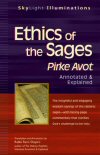
At the heart of Judaism lies an ethical imperative to live life from your true self, as the image and likeness of God. To do this, adherents must see the greatness of God manifest in all things, and therefore engage each moment with grace, humility, and justice. This imperative flowers in the words of the early Rabbis (250 BCE–250 CE), who captured God’s call to be holy in Pirke Avot, a collection of pithy sayings on how best to live an ethical life.
This engaging introduction to the wisdom sayings of rabbinic sages puts readers in direct conversation with them, allowing the sages to speak directly about what matters in life and how to live it with dignity. With a new translation and provocative commentary, Rabbi Rami Shapiro focuses on central themes in this Jewish wisdom compendium: study, kindness, and compassion. He clarifies rabbinic proverbs and parables in order to expose the ethical principles at their root. By recalling the ancient voices of the rabbinic sages, he reveals the contemporary significance of their timeless wisdom and distills Pirke Avot as a practical guide to living ethically today.
This SkyLight Illuminations edition presents the ethical teachings of the rabbinic sages, with insightful yet unobtrusive commentary that conveys Pirke Avot’s core challenge of God to the Jewish people, and through them all humanity: We are to be holy as God is holy. We are to be, in a human way, what God is in a divine way.
Bring[s] the text to life. . . Excellent. . . a valuable source of material for students and teachers alike.
—Union of Liberal and Progressive Synagogues Newsletter
Clarifies and explains the meaning of every segment of the wisdom. . . Recommended for personal study and enlightenment.
—Midwest Book Review
Distills Pirke Avot not as a book about ethics but as a practical guide to living ethically today.
—Jewish Book World
A practical guide to living ethically based on the universally compelling teachings of the early rabbis.
—New Age Retailer
Rami Shapiro is an award-winning author of over two dozen books on religion and spirituality. He received rabbinical ordination from the Hebrew Union College-Jewish Institute of Religion, and holds a PhD from Union Graduate School. A congregational rabbi for 20 years, Shapiro currently co-directs One River Wisdom School.
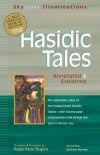
In this volume, Rabbi Rami Shapiro breathes new life into classic stories of the profound and enigmatic spiritual masters from Eastern Europe who combined the mystical and the ordinary. Each of the included tales demonstrates the spiritual power of unabashed joy, offers lessons for leading a holy life, and presents a teaching that the Divine can be found in the everyday. Without an expert guide, the allegorical quality of Hasidic Tales can be perplexing. Shapiro helpfully presents them as stories rather than parables, making them accessible and meaningful. This SkyLight Illuminations edition offers insightful yet unobtrusive commentary that explains theological concepts, introduces major characters, and helpfully offers clarifying references unfamiliar to most readers.
An excellent introduction and anthology of exemplary tales. . . Alive with meaning. Highly recommended.
—Library Journal
An invaluable gift. . . inspiring and enlightening. Filled with insights into human nature and Divine activity in everyday life. . . There is plenty of wise counsel here.
—Spirituality & Health
Like an seasoned Hasid from the emerging future paradigm, Rami tells the stories from the heart. His insightful comments help the contemporary intellect to realize what the soul intuitively knows.
—Rabbi Zalman M. Schachter-Shalomi, author of Wrapped in a Holy Flame and First Steps to a New Jewish Spirit
Rami Shapiro has given us two gifts, an illuminating contemporary rendering of this timeless spiritual classic, along with commentary of everyday, personal stories that reveal the joy-filled wisdom. I loved it!
—Sylvia Boorstein, author of That’s Funny, You Don’t Look Buddhist
Rami Shapiro, a renowned teacher of spirituality across faith traditions, is an award-winning storyteller, poet and essayist. He is author of The Sacred Art of Lovingkindness: Preparing to Practice, Recovery—The Sacred Art: The Twelve Steps as Spiritual Practice and The Divine Feminine in Biblical Wisdom Literature: Selections .
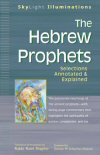
Hundreds of commentaries and dozens of Bible translations make the Hebrew prophets available to modern-day readers, but most often these sources focus on history or apologetics, losing the reader who is searching for spiritual insight.
The Hebrew Prophets makes the wisdom of these timeless teachers available to readers with no previous knowledge of the prophets. With fresh, contemporary commentary, Rami Shapiro reveals the central themes covered by all the prophets: moving from ignorance to wisdom, injustice to justice, cruelty to compassion, and despair to joy.
This unique look at the Hebrew Prophets sharpens the personal nature of their message and highlights their critique of the spiritual errors we all face in life, challenging readers to correct those errors and experience a life of awakening and joy.
The introduction alone makes this book a worthwhile addition to your library.
—Association of Jewish Libraries Newsletter
A valuable introduction to understanding passages of the [Hebrew Scriptures], fully accessible to readers who have little or no knowledge of the Hebrew Bible or Judaism.
—Midwest Book Review
Rami Shapiro, a renowned teacher of spirituality across faith traditions, is an award-winning storyteller, poet and essayist. He is author of The Sacred Art of Lovingkindness: Preparing to Practice, Recovery—The Sacred Art: The Twelve Steps as Spiritual Practice and The Divine Feminine in Biblical Wisdom Literature: Selections .
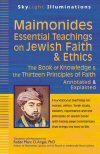
Maimonides—Essential Teachings On Jewish Faith & Ethics: The Book of Knowledge & the Thirteen Principles of Faith
- Author: Maimonides
- Annotator: Marc D. Angel
- Translator: Marc D. Angel
- Series: Skylight Illuminations
- Publisher: Skylight Paths
- Publication Date: 2014
- Pages: 224
No Jewish thinker has had a more significant impact on Jewish religious thought than Moses Maimonides (1138–1204). A medieval philosopher whose vision covered an extensive range, he created a method of mediating between revelation and reason that laid the groundwork for a rational, philosophically sophisticated Judaism. He also provided an approach to biblical interpretation and philosophy that remains relevant for people of all faiths who follow a religion based on sacred text and oral interpretation.
In this accessible examination of Maimonides’s theological and philosophical teachings, Rabbi Marc D. Angel opens up for us Maimonides’s views on the nature of God, providence, prophecy, free will, human nature, repentance and more. He explores basic concepts of faith that Maimonides posits must serve as the basis for proper religious life. He also examines Maimonides’s insights on reward and punishment, messianic days, the world to come and other tenets of Jewish faith.
Now you can experience the wisdom of Maimonides even if you have no previous knowledge of Judaism or Jewish philosophy. This volume provides insightful yet unobtrusive commentary that reveals why Maimonides’s teachings continue to have profound relevance to those seeking an intellectually vibrant understanding of Judaism.
Accessible and authoritative. . . Gracefully traces the contours of Maimonides’s attempt to liberate Judaism from particularism and obscurantism. A wonderful and refreshing achievement.
—Dr. Menachem Kellner, Department of Jewish History and Thought, University of Haifa; author, Must a Jew Believe Anything?
Elucidate[s] and clarif[ies] with particular skill [and] renders some of the complexities of Maimonides’s though into everyday language. [A] worthy addition to the SkyLight Illuminations canon.
—Rabbi Dr. Charles H. Middleburgh, director of Jewish studies, Leo Baeck College
Illuminates for us new ways of perceiving Maimonides’s halakhic, intellectual and spiritual understanding of Judaism. . . and the meaning we can derive for our own lives.
—Dr. Adena K. Berkowitz, scholar in residence, Kol HaNeshamah, New York City
An invaluable new translation. . . a valuable overview of Maimonides’s theological thought [and] a very helpful, lucid commentary that makes the work accessible.
—Dr. Howard Wettstein, editor, Midwest Studies in Philosophy; professor of philosophy, University of California
Marc D. Angel (1945–) is founder and director of the Institute for Jewish Ideas and Ideals. Rabbi emeritus of Congregation Shearith Israel of New York City, he is author and editor of 29 books, including Maimonides, Spinoza and Us: Toward an Intellectually Vibrant Judaism; Foundations of Sephardic Spirituality: The Inner Life of Jews of the Ottoman Empire; and Maimonides—Essential Teachings on Jewish Faith and Ethics.
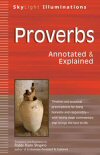
The biblical Book of Proverbs is an anthology of teachings compiled in the seventh century BCE and credited to King Solomon. It transcends nationality and politics, addressing instead the individual seeking the true satisfaction and tranquility that comes from living ethically with God.
In this fresh translation of an ancient “how-to” manual, Rami Shapiro unpacks the proverbs, demonstrating how these complex poetic forms are actually straightforward instructions to live appropriately. He shows how unlike almost anything else in the Hebrew Bible, the truths claimed in the Book of Proverbs are testable and verifiable. They force all men and women to examine their lives: either doing good or doing bad; either disciplined or lazy; either students of wisdom or puppets of desire.
Now you can experience the Book of Proverbs and understand Solomon’s teachings with no previous knowledge of the Hebrew Bible. This SkyLight Illuminations edition presents insightful commentary that shares these timeless principles and encourages readers to put them into practice.
Clear, engaging and instructive. . . a valuable teaching.
—Union of Liberal & Progressive Synagogues Newsletter
Rami Shapiro, a renowned teacher of spirituality across faith traditions, is an award-winning storyteller, poet and essayist. He is author of The Sacred Art of Lovingkindness: Preparing to Practice, Recovery—The Sacred Art: The Twelve Steps as Spiritual Practice and The Divine Feminine in Biblical Wisdom Literature: Selections .
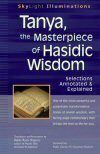
Tanya, “It Was Taught,” is one of the most powerful books of Jewish wisdom. Written in 1797 by Rabbi Schneur Zalman of Liadi, the founder of Chabad Hasidism, Tanya sets forth the fundamentals of Jewish spirituality and mysticism. While a focus of daily study by tens of thousands of Hasidic Jews, Tanya is little known outside the world of Jewish mysticism. Until now, its kabbalistic terms and esoteric language have made this essential text of Jewish spirituality inaccessible to most readers. In this engaging volume, Rabbi Rami Shapiro offers a contemporary English translation of key selections of Tanya coupled with commentary designed to clarify its wisdom.
Rami Shapiro is one of the great Jewish spiritual teachers of our generation. This volume opens one of the all-time classics of Jewish spirituality for beginning students of all faiths. Through his poetic translations and paraphrases, he not only unlocks Tanya but also adds a classic of his own to our library of personal yearning.
—Rabbi Lawrence Kushner, Emanu-El Scholar, Congregation Emanu-El, San Francisco; author, The Way Into Jewish Mystical Tradition and other books
Judicious. . . Should be a help to the beginner and more advanced student alike; it is not just a translation, but a guide to timeless and universal ideas.
—Association of Jewish Libraries Newsletter
Demonstrates deep understandings of rabbinic thought, theology, philosophy, and psychology.
—Jewish Book World
With insight and nuance. . . opens the mystical wisdom of Hasidism to spiritual seekers of all faiths. Both the translation and the commentary guide the reader to a transformed religious consciousness.
—Dr. Eitan Fishbane, author, As Light Before Dawn: The Inner World of a Medieval Kabbalist
Rami Shapiro, a renowned teacher of spirituality across faith traditions, is an award-winning storyteller, poet and essayist. He is author of The Sacred Art of Lovingkindness: Preparing to Practice, Recovery—The Sacred Art: The Twelve Steps as Spiritual Practice and The Divine Feminine in Biblical Wisdom Literature: Selections .
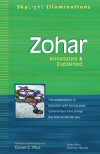
The enigmatic appeal of the Zohar, the major text of the Jewish mystical tradition, intrigues readers of all backgrounds. But how can we truly understand it? In this volume, author Daniel C. Matt brings together the major teachings from the Zohar, the cornerstone of Kabbalah—described as a mixture of theology, mystical psychology, anthropology, myth, and poetry—alongside facing-page stories, notes, and historical background that illuminate and explain the text, making it accessible to all readers.
Matt writes from within the shrine of the great mystery. He enables us to appreciate Jewish mysticism as he presents the masters of the Kabbalah in a way that initiates and illuminates us.
—Rabbi Zalman M. Schachter, Aleph: Alliance for Jewish Renewal
America’s foremost poet laureate of Kabbalah.
—Lawrence Kushner, author of God Was in This Place & I, I Did Not Know, and The Way Into Jewish Mystical Tradition
Professor Matt’s lyrical translations make sparks of light shimmer from Judaism’s most famous mystical classic. With his helpful annotations, he offers us glimpses of the Zohar’s radical biblical interpretations as well as its mystical techniques. An exciting book as well as a rich source for contemplation!
—Tamar Frankiel, author of The Gift of Kabbalah: Discovering the Secrets of Heaven, Renewing Your Life on Earth
Daniel C. Matt is the author of The Essential Kabbalah; Zohar: The Book of Enlightenment; God and the Big Bang: Discovering Harmony Between Science and Spirituality; and Zohar: Annotated and Explained.
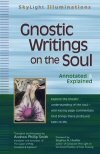
Two ancient Gnostic texts—The Exegesis on the Soul and The Hymn of the Pearl—explore the concept of the soul. In addition to modern translations of these ancient texts, Andrew Philip Smith provides commentary, offering analysis and historical context.
The Exegesis on the Soul depicts the soul as a feminine figure who has fallen into the corrupted world and must find her way back to the Divine—a story of struggle and redemption.
The Hymn of the Pearl is an allegorical story about a prince sent to retrieve a precious pearl but who soon forgets his purpose and falls asleep. It is a tale of the importance of remembering one’s identity and calling.
Accessible facing-page commentary explains the Gnostic writings even if you have no previous knowledge of Gnosticism or early Christianity. Additional material draws on ancient religions, Platonism, Christianity, Judaism, Islam and modern philosophical and psychological notions of the soul to place the Gnostic teachings in a clear historical context.
A fascinating guide to new and different ways of thinking. Smith’s presentation of authentic Gnostic texts [conveys] a good understanding of Gnostic conceptions of the soul.
—Stevan Davies, author of The Gospel of Thomas: Annotated & Explained
Artful and erudite. . . brings these allegories into three-dimensional relief, making them more memorable, accessible, and significant.
—Rabbi Elie Kaplan Spitz, author of Does the Soul Survive? A Jewish Journey to Belief in Afterlife, Past Lives & Living with Purpose
Smith’s fine introduction and notes [reveal how] Gnosticism helped transform Western ideas about the soul. . . Reveals part of our common spiritual heritage.
—Tamar Frankiel, PhD, author of Kabbalah: A Brief Introduction for Christians
Andrew Phillip Smith (1966–) attended the University College of Swansea. He is also the author of A Dictionary of Gnosticism, The Gnostics: History, Tradition, Scriptures, Influence, and editor of The Gnostic.
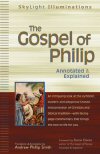
The Gospel of Philip draws on ancient imagery—the natural world relationships between women, men, and family; and ancient distinctions between lord and servants, free people and slaves, and pagans, Jews, and Christians. Andrew Phillip Smith provides a fresh translation of the second-century Coptic text. In his commentary, he also unravels the discourses, parables, and symbolism, exploring the meaning of the text, as well as how it parallels the writings of Paul.
How refreshing to move from our contemporary culture of Christian literalism to a spiritual world alive with symbol, metaphor and the poetry of the Divine.
—Ron Miller, Religion Department chair, Lake Forest College, author of The Gospel of Thomas: A Guidebook for Spiritual Practice
Provides us with a wealth of insightful annotations, and the translation is the most accessible to date. All of those with an interest in Gnostic tradition and its sacraments will be happy to receive this splendid work!
—Stephan A. Hoeller, author of Gnosticism, Jung and The Lost Gospels and The Gnostic Jung
An excellent new translation and annotation that brings a fascinating Gnostic text to life. A valuable contribution to our ongoing efforts to understand the richness of early Christianity.
—Timothy Freke, coauthor of The Jesus Mysteries, Jesus and the Lost Goddess and The Laughing Jesus
Andrew Phillip Smith (1966–) attended the University College of Swansea. He is also the author of A Dictionary of Gnosticism, The Gnostics: History, Tradition, Scriptures, Influence, and editor of The Gnostic.
Stevan Davies is professor of religious studies at Misericordia University and has studied the non-canonical gospels and acts for over thirty years. Among his books are The Gospel of Thomas: Annotated and Explained, The Secret Book of John: The Gnostic Gospel—Annotated and Explained and The Revolt of the Widows: The Social World of the Apocryphal Acts. He has also published books about the canonical Christian scriptures including New Testament Fundamentals and Jesus the Healer: Possession, Trance and the Origins of Christianity.
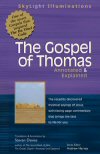
Believed to have been written at the same time as the canonical Gospels, the controversial Gospel of Thomas portrays Jesus as a wise sage. The text also contains a focus on the present, emphasizing the Kingdom of God as being here and now, rather than a future promise. This ancient text posits that self-knowledge and contemplation of the nature of this world are the keys to the Kingdom of Heaven.
Professor Davies has taken the Gospel of Thomas to the next level of intelligibility and accessibility. The commentary stretches the mind, while the comprehensible and accessible translation make Jesus’ (and Thomas’s) voice clear. A masterful resource for both spiritual and intellectual seekers!
—Richard Valantasis, Professor of New Testament and Christian Origins, Iliff School of Theology
Stevan Davies is professor of religious studies at Misericordia University and has studied the non-canonical gospels and acts for over thirty years. Among his books are The Gospel of Thomas: Annotated and Explained, The Secret Book of John: The Gnostic Gospel—Annotated and Explained and The Revolt of the Widows: The Social World of the Apocryphal Acts. He has also published books about the canonical Christian scriptures including New Testament Fundamentals and Jesus the Healer: Possession, Trance and the Origins of Christianity.
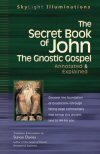
The Secret Book of John is the most significant and influential text of the ancient Gnostic religion. Part of the library of books found in Nag Hammadi, Egypt, in 1945, this central myth of Gnosticism tells the story of how God fell from perfect Oneness to imprisonment in the material world, and how by knowing man’s divine nature and divine origins—that we are one with God—he can reverse God’s descent and find salvation.
The Secret Book of John: The Gnostic Gospeldecodes the principal themes, historical foundation, and spiritual contexts of this challenging yet fundamental Gnostic teaching. Drawing connections to Christianity, Buddhism, Hinduism, kabbalistic Judaism, and Sufism, Davies focuses on the mythology and psychology of the Gnostic religious quest. He illuminates the Gnostics’ ardent call for self-awareness and introspection, and the empowering message that divine wholeness will be restored not by worshiping false gods in an illusory material world but by recognition of the inherent divinity within man himself.
An excellent translation of a seminal text of the Gnostic tradition, with valuable annotations. This book should be welcomed by all students of Gnosticism and especially by all who have sympathies for the spirit of the Gnostic tradition. Highly recommended.
—Stephan A. Hoeller, author of Gnosticism: New Light on the Ancient Tradition of Inner Knowing and other works on Gnosticism
This uncomplicated presentation of a very important ancient text is a helpful stepping stone toward understanding the distinctiveness of Gnostic thought, its relationship to Christian traditions, and its all-inclusive understanding of the Divine.
—Miriam Therese Winter, Medical Mission Sister; professor, Hartford Seminary; author of The Gospel According to Mary: A New Testament for Women
An articulate and illuminating introduction to an important Gnostic text. A good place to begin your study of Gnosticism.
—Ron Miller, Religion Department chair, Lake Forest College, and author of The Gospel of Thomas: A Guidebook for Spiritual Practice
Stevan Davies is professor of religious studies at Misericordia University and has studied the non-canonical gospels and acts for over thirty years. Among his books are The Gospel of Thomas: Annotated and Explained, The Secret Book of John: The Gnostic Gospel—Annotated and Explained and The Revolt of the Widows: The Social World of the Apocryphal Acts. He has also published books about the canonical Christian scriptures including New Testament Fundamentals and Jesus the Healer: Possession, Trance and the Origins of Christianity.
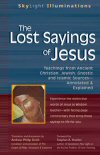
This volume compiles sayings from diverse resources which are often attributed to Jesus. Sources include writings by early Church Fathers, the Qur’an, and fragments of Gnostic gospels. Examples of the sayings include “I am hope for the hopeless,” “Love those who hate you and you will not have an enemy,” and “Give no opportunity to the evil one”. These pointed sayings reveal how Jesus was understood and portrayed across a wide variety of cultures long ago and are useful for modern Gnostic scholarship.
A fascinating kaleidoscope of ‘other takes’ on Jesus from early Christianity’s closest religious neighbors.
—Cynthia Bourgeault, author of Encountering the Wisdom Jesus
An invaluable contribution to historical Jesus research. . . Insightful, even-handed and refreshingly succinct. . . an essential collection.
—Rev. Jeffrey J. Bütz, author of The Brother of Jesus and the Lost Teachings of Christianity
Excellent. . . an invaluable aid in our endeavor to hear [Jesus’s] authentic voice.
—Ron Miller, author of The Hidden Gospel of Matthew: Annotated & Explained
Andrew Phillip Smith has been investigating early Christianity and Gnosticism for over a decade, sharing the results in presentations and writings. He is the author of The Lost Sayings of Jesus: Teachings from Ancient Christian, Jewish, Gnostic and Islamic Sources—Annotated and Explained, The Gospel of Philip: Annotated and Explained, and The Gospel of Thomas: A New Version Based on Its Inner Meaning.
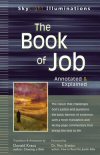
The book of Job often puzzles readers with its unusual dialogue form and unanswered questions. However, even though it was written in a world very different from our own, it raises fundamental questions we still grapple with today: Is living a good life worth it? Does life have a meaning beyond itself? Why do the righteous suffer and the guilty prosper?
In this accessible guide, Donald Kraus, the editor of the Oxford University Press Study Bible program, clarifies the purpose of Job, helps overcome difficulties in the text, and suggests what it may mean for us today. Kraus’ fresh translation captures some of the finest poetry in the Hebrew Bible and uncovers the original author’s intent in a way that is accessible for modern readers.
Donald Kraus’s exposition is eloquent, theologically sensitive and, like the book of Job itself, unflinching in its honesty. A masterpiece!
—Michael Coogan, lecturer on Old Testament/Hebrew Bible, Harvard Divinity School; director of publications, Harvard Semitic Museum
A wise, insightful and clear guide to this fascinating book. . . An excellent companion to reading Job, either on one’s own or in a group.
—Carol A. Newsom, Charles Howard Candler Professor of Old Testament/Hebrew Bible, Emory University; author, The Book of Job: A Contest of Moral Imaginations
Kraus invites us to wrestle, like Job, with the hardest questions in life, about suffering, justice, fairness and the place of God in the midst of all of it. This is an excellent resource for adult education, personal enrichment, someone who wants more insight into a literary gem (Kraus’s translation is a wonder of beauty), or the seeker after Wisdom.
—The Most Rev. Katharine Jefferts Schori, Presiding Bishop, Episcopal Church; author, Gathering at God’s Table: The Meaning of Mission in the Feast of Faith
Donald Kraus is the executive editor for Bibles at Oxford University Press. He is the author of Sex, Sacrifice, Shame, and Smiting: Is the Bible Always Right? and Choosing a Bible. He received his BA in English Language and Literature at Trinity College and studied at Harvard Divinity School.
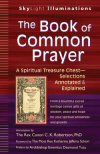
This source of strength and solace for millions of Christian clergy and laypeople throughout the world can be a companion for your own spiritual journey. First published in 1549, the Book of Common Prayer has perhaps influenced the way English speakers think and talk about God as much as any book outside the King James Bible. Today almost eighty million Anglican Christians throughout the world use the Book of Common Prayer in public worship, and countless people—Anglican and otherwise—use it in their private devotional life.
In this unique presentation of selections—organized by themes such as “Blessings in Times of Joy and Pain,” “Called to Serve,” and “Praise and Petition”—C.K. Robertson offers helpful commentary, with fascinating insights into the history and heritage of the Book of Common Prayer. He makes available the riches of this spiritual treasure chest for all who are interested in deepening their life of prayer, building stronger relationships, and making a difference in the world.
This reader-friendly volume includes a foreword by Katharine Jefferts Schori, the presiding bishop of the Episcopal Church, and a preface by Desmond Tutu, archbishop emeritus of Cape Town.
A gift to the larger ecumenical community. The Book of Common Prayer. . . continues to offer spiritual formation to Christians of many traditions. . . this remarkable guide will enrich our pursuit.
—Kathryn Mary Lohre, president, National Council of the Churches of Christ USA
A fresh new set of insights. . . A wellspring of encouragement to go deep and wide with this treasure trove of Christian roots and wings. I commend this work and all its potential for invigorating worship and transforming our experience of liturgy.
—David Moxon, director, Anglican Centre in Rome
There is. . . a kind of magnificence of scope that, combined with the richness of intimacy, blesses both the soul and the mind of its reader. The Book of Common Prayer has never been better served or more sympathetically considered than it is in these pages.
—Phyllis Tickle, author, Emergence Christianity: What It Is, Where It Is Going, and Why It Matters
Warmly and brilliantly guides us through the spiritual riches of one of Christianity’s most sublime religious texts. Anyone who seeks wisdom, hope and a deeper, more authentic prayer life, both individually and communally, will find this resource immensely rewarding.
—Peter Wallace, author, The Passionate Jesus: What We Can Learn from Jesus about Love, Fear, Grief, Joy and Living Authentically
C.K. Robertson is canon to the presiding bishop of the Episcopal Church, and distinguished visiting professor at the General Theological Seminary in New York City. Robertson serves on several national boards and has published many books and articles, including A Dangerous Dozen: 12 Christians Who Threatened the Status Quo but Taught Us to Live Like Jesus; Transforming Stewardship; Jesus and Paul: Global Perspectives and Conversations with Scripture: The Acts of the Apostles.
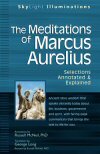
Stoicism is often portrayed as a cheerless, stiff-upper-lip philosophy of suffering and doom. Yet as experienced through the thoughtful and penetrating writings of Roman emperor Marcus Aurelius (121–180 CE), the Stoic approach to life is surprisingly rich, nuanced, clear-eyed and friendly.
With facing-page commentary that explains the texts for you, Russell McNeil, PhD, guides you through key passages from Aurelius’s Meditations, comprised of the emperor’s collected personal journal entries, to uncover the startlingly modern relevance his words have today. From devotion to family and duty to country, to a near-prophetic view of the natural world that aligns with modern physics, Aurelius’s words speak as potently today as they did two millennia ago.
Stunningly accessible. . . A competent scholarly treatment of an ancient philosophical text. . . by an articulate and convincing modern Stoic. . . A valuable explanation of an ancient philosophy that has lasting influences in today’s intellectual world. . . [McNeil has] a profound understanding of the many dimensions of the Stoic worldview [and] is a fine writer [to] introduce the reader who has little background in the classics to one of the most temperate and consoling philosophers of all time.
—Equinox
Has much to say [about] our contentious times. . . Substantive.
—Spirituality & Practice
A stirring reinterpretation of Aurelius’s Stoicism for our time. In Russell McNeil, Marcus Aurelius has at last met the colleague he has sorely needed for almost two millennia: a sensitive and systematic editor, and a loyal and lucid commentator.
—John Black, professor of philosophy and liberal studies, Malaspina University-College
Russell McNeil, PhD, is a popular lecturer on the classics. He has been a columnist and commentator in newspaper, radio and television, and is founder and Web editor of Malaspina Great Books series, one of the largest Web resources for classic literature. He is a former professor at Malaspina University-College in British Columbia.
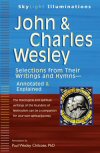
Anglican priest, theologian, and church reformer John Wesley cofounded Methodism with his brother Charles Wesley—one of the greatest hymn writers of all time. Methodism was a major movement of Christian renewal, and the Wesleys’ vision of Christian discipleship included important spiritual practices that fueled the revival of the eighteenth-century Church of England.
While John articulated his vision of Christianity through many sermons, journals, and theological treatises, Charles expressed himself through some nine thousand hymns and devotional poems. These excerpts from Charles and John Wesley, including probing commentary by Weslyean expert Paul W. Chilcote, provide insight into the renewal of dynamic and vital Christianity. Their holistic theology and spirituality can guide the contemporary spiritual seeker who yearns for greater meaning and purpose in life.
A much-needed contribution to the church.
—Steven W. Manskar, director of Wesleyan leadership, General Board of Discipleship of the United Methodist Church
This wonderful resource inspires greater faithfulness in witness, discipleship, and service in the Wesleyan spirit.
—Ulrike Schuler, professor of church history, Methodism, and ecumenism, Reutlingen School of Theology
Paul W. Chilcote is author of Come Thou Long-Expected Jesus: Advent and Christmas with Charles Wesley. He is president of the Charles Wesley Society and professor of historical theology and Wesleyan studies director of the Center for Applied Wesleyan Studies at Ashland Theological Seminary.
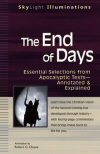
Christian concepts of the end times involve complex beliefs that have developed over the centuries. They range from popular ideas about the rapture when believers will be swept up to meet Christ in the air, to suspicions about the Antichrist who will deceive and enslave the world, to teachings about the millennium when Christ himself will return victoriously to reign in peace for a thousand years. Christians have disagreed, sometimes violently, on exactly how and when these events will occur—or whether they will occur at all.
With insightful and broad knowledge of the historical, religious, and contemporary contexts of these writings, distinguished scholar Robert G. Clouse guides you through the fascinating and intricate world of apocalyptic literature. He examines key verses from Christian and Hebrew scriptures; visionary writings from Augustine and other church fathers; accounts of radical millennial movements of the seventeenth century; bold sermons from preachers such as Jonathan Edwards and Dwight L. Moody; and popular books circulating in our own day, including late twentieth-century prophecy sensation The Late Great Planet Earth and the mega-bestselling Left Behind novels. Clouse’s accessible commentary explains the apocalyptic writings, even for readers with no previous knowledge of Christian teachings on the end times.
A must-read for serious students of our world and of the Bible.
—Donald K. Campbell, president emeritus, Dallas Theological Seminary
Masterful. . . A fine resource for the careful student.
—Homer Kent, president emeritus, Grace College and Theological Seminary
Robert G. Clouse (1931—) is professor emeritus at Indiana State University. He was the editor of The Meaning of the Millennium and is the author of The Church in an Age of Orthodoxy and Enlightenment, 1600–1800.
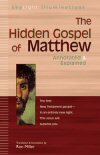
Matthew’s Gospel is the first book of the New Testament, visible to all the world for almost 2,000 years—but there is something hidden beneath its surface. It wasn’t written at one time by one person—it is an edited document, bringing together different sources of tradition. The Hidden Gospel of Matthew: Annotated and Explained takes readers deep into the text to find the words and events that have the strongest connection to the historical Jesus. Ron Miller reveals the underlying story of Matthew to readers, giving them a full appreciation of the book’s message, uncovering a portrait of Jesus that at times resembles the gnostic Christ and sage teacher of the Gospel of Thomas more than it does traditional Christianity.
Ron Miller is the chair of the religion department at Lake Forest College in Lake Forest, Illinois. He is the author of many books and articles, including The Gospel of Thomas: A Guidebook for Spiritual Practice and Healing the Jewish-Christian Rift: Growing Beyond Our Wounded History.
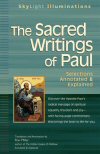
The Apostle Paul, who wrote many of the books in the New Testament, was a fearless and revolutionary religious innovator. In a society where slaveholding was commonplace and women were little more than servants, he preached a groundbreaking equality founded on a new spiritual identity. In an imperial political system that demanded unquestioning allegiance, Paul told his readers they were citizens of heaven. Yet Paul diverged from many of Jesus’ own teachings about the world and God’s kingdom, and his writings have been used to justify slavery, defend violence toward women, and vilify followers of other religious paths.
With fresh translations from the original Greek and insightful yet unobtrusive commentary, Ron Miller guides you through the complexities of Paul’s writings. He explores Paul’s limitations and sometimes harmful legacy, but also highlights his deep connection with God’s Spirit. This connection led to Paul’s penetrating insights on how to live a life filled with spiritual vigor, experience profound joy even in the face of trouble, and understand the fundamental power of love to overcome any obstacle.
Masterful. . . Brings Paul to life for the twenty-first century reader who wishes. . . to relate [Paul’s] letters to her or his own spiritual quest. [A beneficial] guide to one of the most influential religious writers of all time.
—Adela Yarbro Collins, PhD, Buckingham Professor of New Testament Criticism and Interpretation, Yale University Divinity School
A perceptive account of one of [Christianity’s] greatest figures. . . illuminates Paul’s deep spirituality.
—Andrew Phillip Smith, author, The Lost Sayings of Jesus: Teachings from Ancient Christian, Jewish, Gnostic and Islamic Sources—Annotated and Explained
Thought-provoking. . . A welcome addition to the library of any lay theologian. . . A way to celebrate the Christian life without having to belittle the lives and faith traditions of other people in the process.
—Presbyterians Today
Ron Miller is the chair of the religion department at Lake Forest College in Lake Forest, Illinois. He is the author of many books and articles, including The Gospel of Thomas: A Guidebook for Spiritual Practice and Healing the Jewish-Christian Rift: Growing Beyond Our Wounded History.
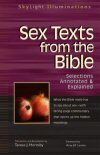
For some people, the Bible’s perspectives on sex seem too one-dimensional or antiquated to apply to modern-day life. Others may hold up the Bible as the ultimate moral guideline when it comes to human sexuality. A close reading of the Bible reveals that while its rules and lessons about sex may not be applicable to all people at all times, this sacred scripture does offer surprising insight into our modern sexual lives. This intriguing guide demystifies the Bible, synthesizing basic historical, theological, literary, and linguistic ideas about the Bible’s texts with our modern attitudes about sex.
Thoughtful new translation and provocative commentary bridge the divide between biblical authority and our present-day views on gender roles, marriage, sexual orientation, virginity, lust, and sexual pleasure. Drawing from Hebrew and Christian Scripture, it examines the ways the language of religion and the language of sex intersect. Now you can discover what the Bible says about sex with no previous background in theology or religious history. Teresa Hornsby offers insightful and engaging commentary that explains the historical context and religious worldviews of those who wrote the Bible as well as the role their perspectives play in current social debates.
Comprehensive yet accessible. By providing details about translation and context, Hornsby demonstrates how sex and holiness are intertwined.
—Alice Hunt, associate dean for academic affairs and assistant professor of Hebrew Bible, Vanderbilt University Divinity School
Marvelously accessible, [a] spirit of delight, humor and knowledge jumps off the pages. After reading this work, you will think much more carefully about the way the Bible gets used—and often abused—in contemporary discussions of our intimate lives.
—Peter Browning, chaplain and associate professor of philosophy and religion, Drury University
Insightful, scholarly and thoroughly readable … begins to move its readers in a more informed and healthier direction when seeking to understand sexual issues in biblical texts
—Ron Miller, professor of religion, Lake Forest College; author, The Hidden Gospel of Matthew: Annotated & Explained
Teresa Hornsby is associate professor of religion at Drury University and is the director of Drury’s Women and Gender Studies Program. She is a popular teacher, speaker, and media consultant.
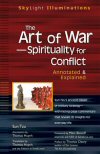
Written 2,500 years ago by Chinese general Sun Tzu, The Art of War is a treatise on military strategy. Many believe that the principles in this text transcend warfare and have practical applications to the conflicts and crises faced in everyday life. Translator and annotator, Thomas Huynh guides readers through Sun Tzu’s work, explaining the different principles.
Sun Tzu was a Chinese military general, strategist and philosopher who lived in the Spring and Autumn Period of ancient China.
Thomas Huynh is an author, translator, and scholar of the Chinese classic, Sun Tzu’s The Art of War.
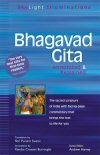
Millions of people turn daily to one of India’s holy books, the Bhagavad Gita, to instruct their spiritual practice. Composed in Sanskrit verse thousands of years ago, this text tells the story of a distraught warrior on the verge of battle and the counsel he receives from Krishna in human form. In just 700 lines, the Gita presents concise teachings on such topics as the immortality of the soul, meditation and yoga, worship and sacrifice, and the ideal of selfless action.
Shri Purohit Swami (1882–1941) was a Hindu teacher from Maharashtra, India.
Kendra Crossen Burroughs is a book editor. She compiled The Essential Ken Wilber and Entering the Tao: Master Ni’s Guidance for Self-Cultivation.
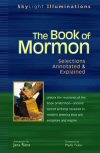
The Book of Mormon: Selections Annotated & Explained explores this epic that is read by more than twelve million members of The Church of Jesus Christ of Latter-day Saints (LDS) as the keystone of their faith. Probing the principal themes and historical foundation of this narrative, Jana Riess focuses on key selections that offer insight into contemporary Mormon beliefs and scriptural emphases, such as the atonement of Christ, the nature of human freedom, the purpose of baptism, and the need for repentance from sin. She clarifies the religious, political, and historical events that take place in the ancient communities of the Book of Mormon and their underlying contemporary teachings that serve as the framework for spiritual practices that lie at the core of Mormon life.
Jana Riess is the Religion Book Review Editor for Publishers Weekly magazine. She holds degrees in religion from Wellesley College and Princeton Theological Seminary, and a PhD in American religious history from Columbia University.
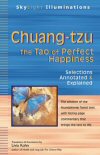
The Chuang-tzu is the second major text of the Taoist tradition. It was compiled in the third century BCE and follows the lead of the oldest of all Taoist texts, the Tao-te-ching (Book of the Tao and Its Potency). Using parable, anecdote, allegory, and paradox, the Chuang-tzu presents the central message of what was to become the Taoist school: a reverence for the Tao—the “Way” of the natural world—and the belief that one is not truly virtuous until one is set free from the burden of circumstance, personal attachments, tradition, and the desire to reform the world. Leading Taoist scholar Livia Kohn provides a modern translation of key selections from this text and accessible commentary on Taoist principles.
Livia Kohn is a leading Taoist scholar. She is professor emerita of religion and East Asian studies at Boston University. She is also author or editor of over 25 books and many articles on Taoism and East Asian religions, including Daoism and Chinese Culture, Daoism Handbook, and Health and Long Life: The Chinese Way.
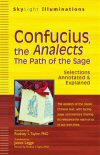
Twenty-six centuries after their origination, the principles laid down in the Analects of Confucius still act as the foundation of Chinese philosophy, ethics, society, and government, and play a formative role in the development of many Eastern philosophies. In this intriguing look at the meaning of the Analects, Rodney L. Taylor, the foremost American researcher of Confucius as a religious and spiritual figure, explains their teachings. He shows how Confucius advocates learning and self-cultivation to follow the “path of the sage” or “way of heaven.”
Alongside an updated version of the classic translation by Sinologist James Legge, Taylor provides informative and accessible commentary that illuminates the meaning behind selected passages from the Analects.
Rodney L. Taylor is professor of religious studies at the University of Colorado at Boulder, where he also served as director of Asian studies, chair of the department of religious studies, and associate dean of the graduate school. He is author of The Religious Dimensions of Confucianism, The Way of Heaven, The Confucian Way of Contemplation, and The Illustrated Encyclopedia of Confucianism.
James Legge (1815–1897) was the first professor of Chinese language and literature at the University of Oxford. In 1839, he served as a Congregationalist missionary to China and representative of the London Missionary Society in Malacca and Hong Kong from 1840 to 1873. He translated five books in the Sacred Books of the East series.
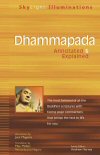
The Dhammapada (Path of the Buddha’s Teachings) is read by millions of Buddhists all over the world.
Originally composed in the ancient language of Pali, this text paints contrasting portraits of three levels of human existence—the fool, the wise one, and the enlightened one—and addresses specific aspects of experience, conduct, and belief that characterize the transformation from one of these modes of being to another.
Friedrich Max Müller (1823–1900) was a prolific editor and author born in Dessau, Germany. Fluent in Greek, Latin, Arabic, Persian, and Sanskrit, Müller would spend a successful career teaching at various universities and producing important translations. Along with the massive 50-volume The Sacred Books of the East, in which he was the managing editor, Müller’s works include The Gifford Lectures of 1888–92; India, What can it Teach Us?; Introduction to the Science of Religion; A History of Ancient Sanskrit Literature.
Jack Maguire is also the author of Essential Buddhism: A Complete Guide to Beliefs and Practices.
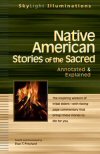
Drawn from tribes across North America, Native American Stories of the Sacred is a careful retelling of traditional stories. The stories include Son of Light’s quest to win back his captured wife from the monstrous Man-Eagle; humble Muskrat’s self-sacrifice to establish solid land so other beings might live; Water Spider’s solution for retrieving fire for all the animals; and White Buffalo Calf Woman’s gift of the sacred pipe to the people.
Evan T. Pritchard is a descendant of the Mi’kmaq people. Pritchard has taught Native American studies at Pace University, Vassar College, and Marist College and is the director of the Center for Algonquin Culture. He is also the author of several books, including Native New Yorkers and No Word for Time.
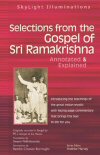
Indian mystic Ramakrishna taught that all religions are the revelation of God in his diverse aspects to satisfy the manifold demands of human minds. Many saw Ramakrishna as a saint or as a divine incarnation and a “supremely realized self.” Millions of devotees follow his message. This volume includes selections of Ramakrishna’s teachings and accessible commentary on their meanings.
Swami Nikhilananda was a monk of the Ramakrishna Order of India and played an integral role in introducing the teachings of Yoga and Vedanta to the West.
Kendra Crossen Burroughs is a book editor. She compiled The Essential Ken Wilber and Entering the Tao: Master Ni’s Guidance for Self-Cultivation.
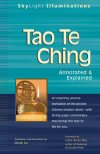
Reportedly written by a sage named Lao Tzu over 2,500 years ago, the Tao Te Ching is one of the most succinct spiritual texts ever written. The Tao Te Ching distills into poetry centuries of spiritual inquiry into the Tao—the “Way” of the natural world, the organizing principle of the universe. This volume includes insightful commentary, along with a new translation from the original Chinese. Lin’s translation has been lauded by critics for its accuracy and lyrical beauty.
Derek Lin is an award-winning author. His other works include The Tao of Daily Life and The Tao of Success.
Lao Tzu was an ancient Chinese philosopher and poet. He is best known as the reputed author of the Tao Te Ching and the founder of philosophical Taoism. In religious Taoism and traditional Chinese religions, he is revered as a deity.
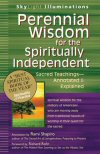
Some of life’s greatest questions include “Who am I?”, “Where did I come from?”, “Where am I going?”, “How shall I live?”, and “Why?” In this volume, Rabbi Rami Shapiro explores major world religions’—Christianity, Judaism, Islam, Hinduism, Buddhism, and more—answers to these questions.
Rami Shapiro is an award-winning author of over two dozen books on religion and spirituality. He received rabbinical ordination from the Hebrew Union College-Jewish Institute of Religion, and holds a PhD from Union Graduate School. A congregational rabbi for 20 years, Shapiro currently co-directs One River Wisdom School.